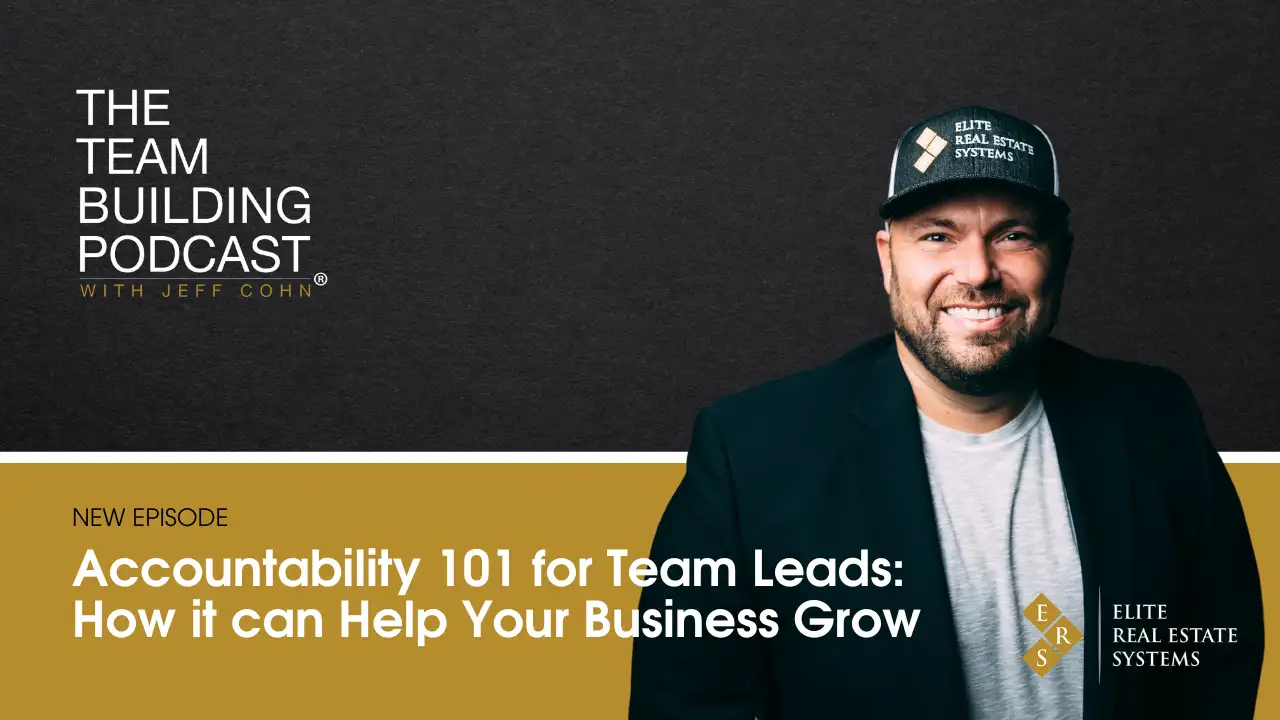These are the three types of agents your real estate organization needs to function properly and thrive: dependent, interdependent, and independent.
Each one brings a unique blend of skills, experience, and perspective to the table.
Having this diversity will guarantee smoother and easier daily operations and better results.
[Image]
But the question arises: Once you’ve got these top-tier talents on board, how do you ensure they stay? How do you cultivate an environment that not only retains but also nurtures these gifted individuals? In this Team Building Podcast episode, Jeff shares his insights on how to find the right agents.
Dependant Agent
These agents are typically newer to the industry with fewer than ten transactions a year in, they are usually part of a supportive team, and they rarely work solo.
A dependent agent will generate under $5 million per year; their potential is immense.
They’re like sponges, ready to soak up knowledge, brimming with queries, and on the lookout for guidance and mentorship.
[Image]
Interdependent Agent
Next, we have the interdependent agent, who has more experience and has handled fifty to a hundred deals. They’ve been in the business for 2-3 years.
While they can fly solo with ease, they might choose to join a team, adding their wealth of knowledge to the collective brainpower. These agents are bringing in $5 million or more per year.
Independent Agent
Lastly, we have independent agents who can exist on an island if they want to.
They’re self-reliant, able to operate from anywhere – even their homes. They have more than five years of experience and bring well over $5 million per year.
These agents are always seeking to forge meaningful connections within the industry. Their autonomy, combined with their networking prowess, makes them a unique breed in the real estate world.
[Image]
Why Is It Important to Recognize the Type of Agent?
The importance of recognizing them is essential; It provides us with the roadmap to tailor our leadership approach effectively, honing in on the skills each agent needs to develop. As a leader, it is our job to improve their skill and give them the tools they need to become the best version of themselves.
The goal is to facilitate the growth of our employees, helping them transition from one type of agent to the next. For instance, if they’re currently dependent agents, we should strive to nurture their skills and confidence until they reach the level of interdependent agents and, eventually, independent ones.
Your Role as the Leader
However, it’s essential to remember that effective leadership isn’t solely about directing others; it’s also about introspection and personal growth.
Your capacity to lead is intrinsically tied to your own professional development. You can only guide others as far as you yourself have journeyed.
Therefore, continuous self-improvement is key. Strive to evolve into an independent agent, and don’t stop there. Keep pushing your boundaries, learning new skills, and broadening your understanding of the industry. As you grow, you’ll not only increase your capacity to lead but also inspire your team members to do the same.
So, how do you develop each agent the right way?
[Image]
Dependent Agents Grow and Attract Strategy
Defendant agents thrive under guidance; they need someone who makes the process with them. Make it a requirement to have interdependent or dependent agents to supervise them.
One vital aspect of this strategy is documentation for these agents. This encompasses everything from client interactions to transaction details. Having a well-documented record provides a reference point.
Continuous training is another cornerstone of this strategy. Regular workshops, seminars, and training sessions will enhance their skills, boost their confidence, and keep them updated on industry trends.
Lastly, it’s important to assign leads that align with their current skill set. This doesn’t mean limiting them to easy tasks; rather, it’s about providing them with opportunities that challenge them just enough to stimulate growth without overwhelming them.
Interdependent Agents Grow and Attract Strategy
Interdependent agents are unique in their approach to growth and attraction strategies. They often possess considerable expertise and confidence, which can be a double-edged sword.
While this self-assuredness can drive them to achieve great things, they also believe they don’t need as much training and want to do them all themselves.
To navigate this challenge, place them in situations where they can both share their knowledge and learn from others. This could involve collaborative projects or peer-led training sessions.
These agents often have a strong drive to take charge, which can be an asset when channeled appropriately. However, unchecked, this desire to control everything can lead to burnout or mismanagement and a mediocre job overall.
To avoid this, consider assigning a success manager to them. This individual can provide guidance, ensure they stay on track with their responsibilities, and help them delegate tasks effectively.
Finally, remember that interdependent agents value recognition. They want their efforts to be acknowledged and their successes celebrated. Make sure to give a shout-out and recognize their hard work.
[Image]
Independent Agent
Managing independent agents requires a nuanced approach that respects their autonomy while also ensuring they align with the organization’s objectives. One way to achieve this balance is by offering them a split structure. This model allows them to decide their level of involvement in various projects.
Complete autonomy doesn’t mean complete isolation. Even independent agents need support and resources to succeed. Ensure they have access to all necessary tools, technologies, and information. Regular check-ins can also help, providing a platform for them to share their progress, challenges, and ideas.
Remember that independence doesn’t equate to indifference towards rules. Independent agents may prefer flexibility, but they also understand the importance of guidelines. They don’t necessarily dislike rules; they dislike unnecessary restrictions. So, ensure your rules are clear, fair, and purposeful.
Start Team Culture Building Today
Don’t wait to build a strong team culture that attracts and retains top talent. Start today with ERS and take your team’s success to new heights.
Contact us now to learn how we can help you create a positive and thriving team culture.




